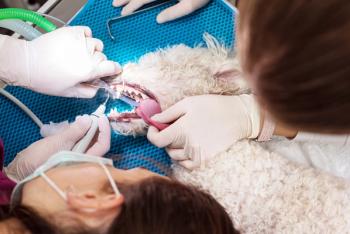
Handling clients whose pets have ingested illicit drugs
What's your legal responsibility when you suspect a pet has been poisoned with illegal drugs?
Your first responsibility is to ensure the pet is stabilized and properly treated, regardless of the source of a poisoning, says Charlotte Lacroix, DVM, JD, owner of Veterinary Advisors Inc., a veterinary consulting firm in Flemington, N.J. Your second responsibility is to decide whether animal cruelty might be in play.
If you think the poisoning was intentional and abusive (as in the case of a
On the other hand, if you guess that the poisoning was accidental and that the client treats the pet well otherwise, your next move should probably be to teach the client about the health risks to pets. “If someone is just insensitive and careless, when they're educated, they understand the gravity of what they're engaged in,” Dr. Lacroix says. “And maybe they'll educate their friends too.”
You don't need to get involved with the criminal aspect of the client using illegal drugs. “You have no jurisdiction over the people,” Lacroix says. “You can call the police if you want to, but you're not required to report illegal activity such as drug possession.”
Newsletter
From exam room tips to practice management insights, get trusted veterinary news delivered straight to your inbox—subscribe to dvm360.





